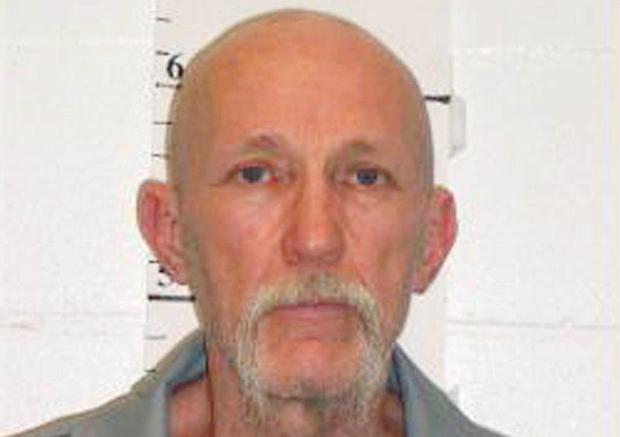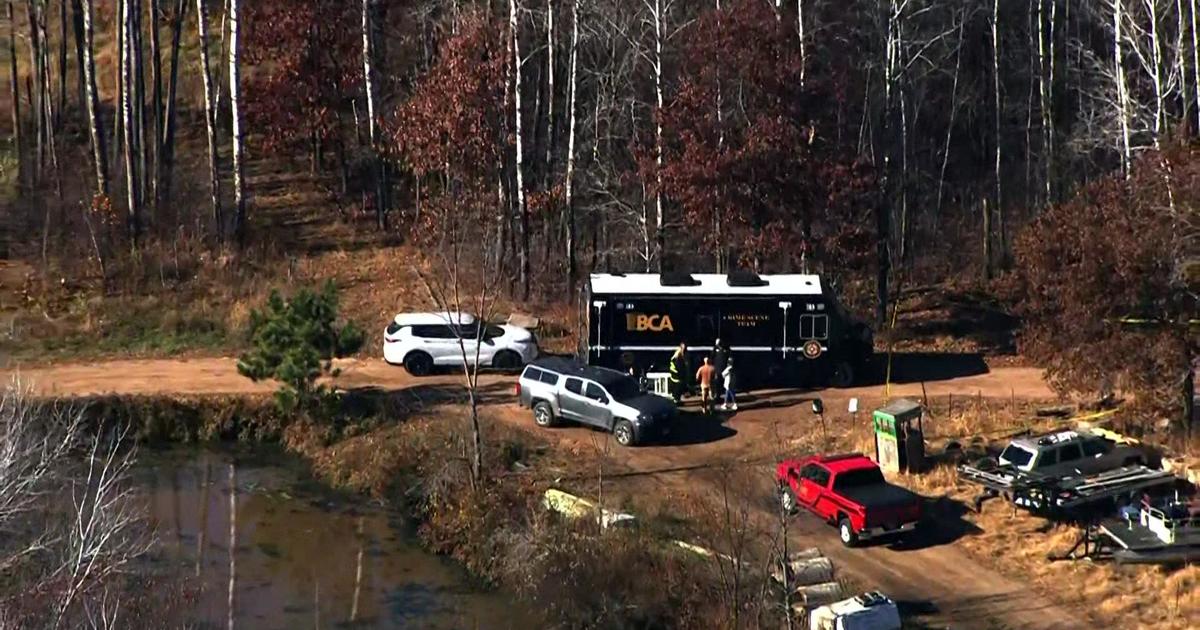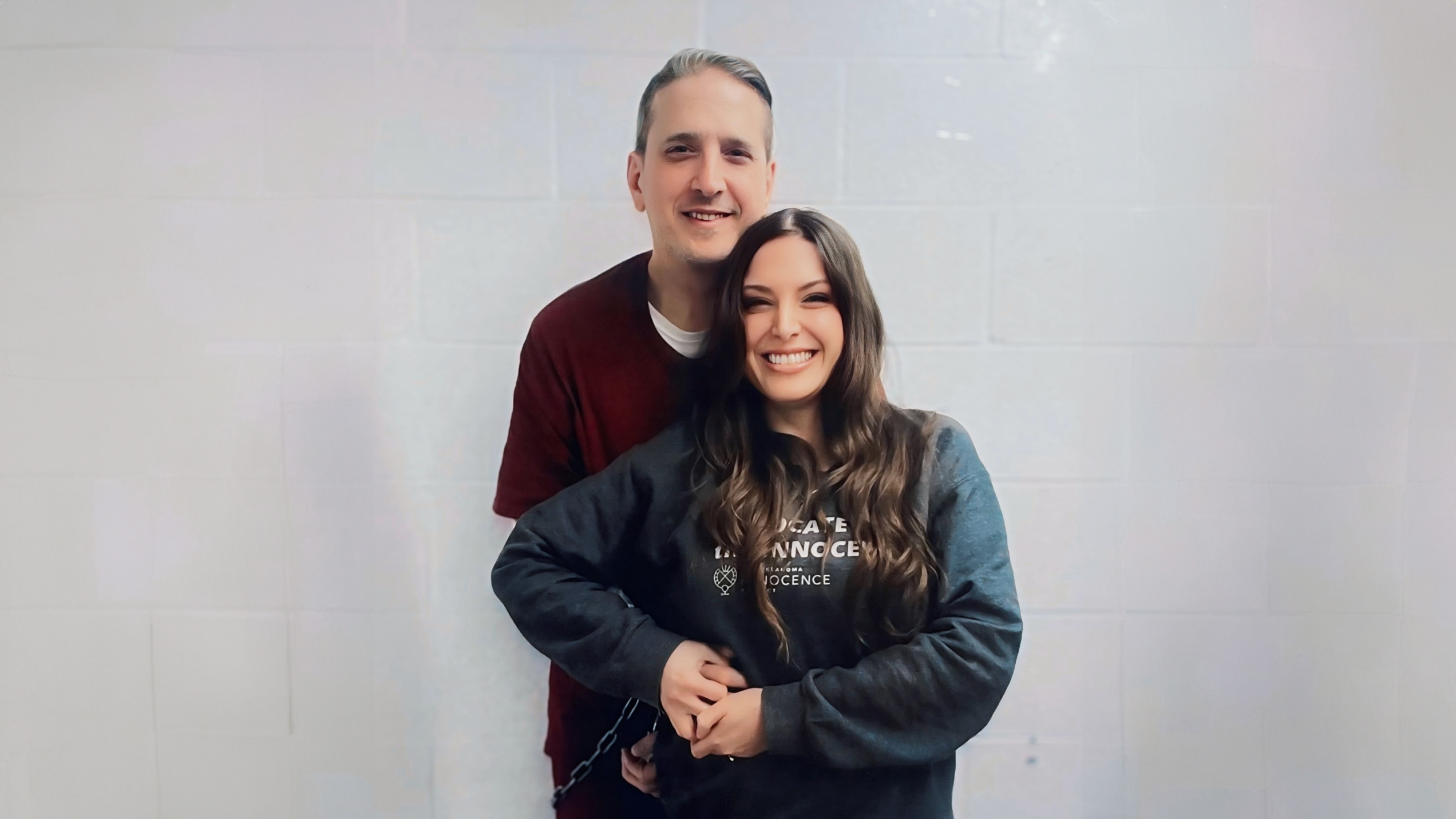Appeals court clears way for Missouri execution despite new questions over evidence
A federal appeals court has cleared the way for a Missouri death row inmate to be executed on Tuesday, despite questions raised about evidence used to convict him. The Sunday decision by the 8th U.S. Circuit Court of Appeals vacated a 30-day stay of execution granted Friday to Walter Barton by a federal judge. Barton, 64, is now set to die by lethal injection for the 1991 killing of 81-year-old trailer park operator Gladys Kuehler.
Kuehler was beaten, sexually assaulted and stabbed more than 50 times in Ozark, near Springfield. The federal judge on Friday had decided the court needed more time to consider issues raised by Barton's attorneys, including new concerns about blood spatter evidence used to convict him.
Prosecutors appealed the judge's stay, and the 8th Circuit said it saw "no possibility of success" on Barton's claims, which it said presented no new evidence.
Barton's attorney, Fred Duchardt Jr., said last week that three jurors involved in Barton's 2006 trial now express misgivings based on new blood spatter evidence.
Barton was one of three people, including the victim's granddaughter, who found her dead in her bedroom on October 9, 1991. According to court records, Barton was an acquaintance of the victim's who frequented the trailer park she managed, where she also lived. He had been at her home earlier in the day to ask to borrow $20, and she told him to return later to pick up the check.
When officers questioned Barton about small bloodstains on his clothing, he said he must have gotten the victim's blood on him when he pulled her granddaughter away from the body, the Kansas City Star reported. The granddaughter at first confirmed the account, but later changed her story, according to the paper.
At his trial, a prosecution expert argued the three small bloodstains were the result of spatter resulting from blows to the victim, the paper reported. But a crime scene analyst later retained by the defense said he believed whoever killed Kuehler, whose throat was cut, would have been covered in blood. Duchardt said three jurors recently signed affidavits saying the new evidence would have affected their deliberations. The jury foreman said he would have been "uncomfortable" recommending the death penalty based on the new evidence, Duchardt said.
Barton's case has been tied up in court for years due to mistrials, appeals and two overturned convictions. He was prosecuted five times between 1993 and 2006, and has always maintained his innocence. The Missouri Supreme Court narrowly upheld his conviction in 2007, with multiple judges dissenting. One dissenting judge, Michael Wolff, wrote: "How could Barton have perpetrated the kind of violent, forceful attack that killed Ms. Kuehler and walked away quite unstained by the effort?"
Wolff wrote he couldn't imagine why a court would impose the death penalty based on the case's "sorry record." He noted the presence of a hair on the victim's stomach that did not match Barton's, evidence his defense presented at trial. He also noted that prosecutors failed to disclose that they had agreed to drop a charge against a jailhouse informant in exchange for her testimony that Barton had told her he would kill her "like he killed that old lady." Wolff said the testimony of the informant, who had been convicted of writing bad checks, "strains credulity and cannot be considered persuasive evidence of an admission by Barton."
The American Bar Association has called on Republican Governor Mike Parson to issue an execution reprieve, citing the case's "troubling history" and "lingering doubts around guilt," and to commission an inquiry board to review Barton's conviction and sentence. The ABA cited "unprecedented limitations on effective representation" due to the coronavirus pandemic. In Barton's case, coronavirus restrictions have made it difficult for his attorneys to investigate the new evidence, the group wrote.
The NAACP and Missourians for Alternatives to the Death Penalty submitted more than 5,000 petition signatures Wednesday to Parson, urging him to grant clemency to Barton.
In a letter to Parson on Friday, The Innocence Project, the Midwest Innocence Project and the MacArthur Justice Center echoed the call for an independent inquiry board to review the case. It said Barton's conviction "rests entirely upon evidence now known to be two of the leading causes of wrongful conviction: incentivized jailhouse informant testimony and blood spatter evidence, an infamously unreliable forensic 'science.'"
"The evidence against Mr. Barton has always been weak and circumstantial—so weak it took the state five tries over the course of 15 years—to convict and sentence him to death," the letter read. "Just two pieces of evidence were used to secure Mr. Barton's conviction, both of which have now been fatally undermined."
The execution would be the first in the U.S. since March 5 and is scheduled despite concerns about the coronavirus that prompted other states to postpone lethal injections.




